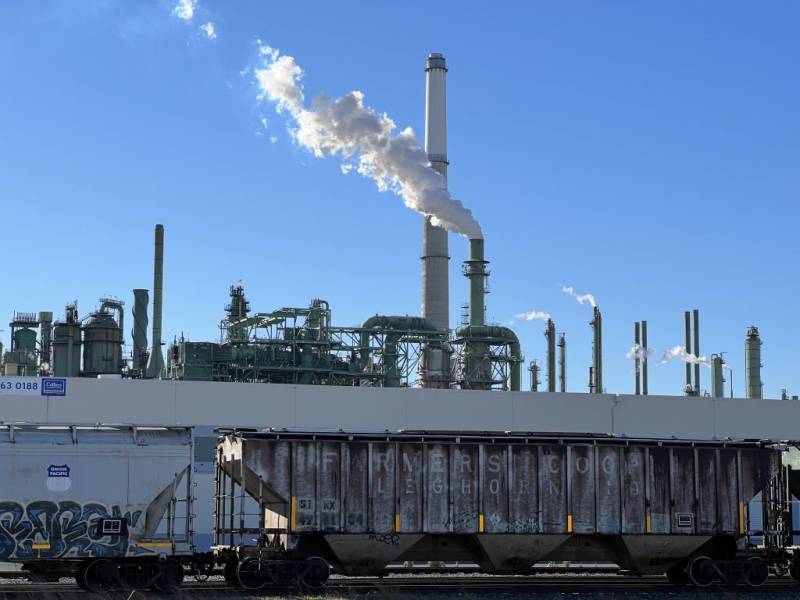The alleged safety breaches include failure to repair the broken welding apparatus; failure to test and monitor conditions in the enclosed space where Gutierrez died; and failure to equip the team that retrieved Gutierrez with the appropriate breathing apparatus and other safety equipment.
"It appears that this was a classic case of poor communications and poor attention to details," said Craig Peters, an attorney specializing in workplace accidents at San Francisco's Altair Law, who reviewed the state investigation's summary.
"The circumstances indicate a serious inattention to basic safety protocols when dealing with dangerous confined spaces and gases that can be deadly," he said.
According to Cal/OSHA's summary of the incident, night-shift crews were getting ready to do welding in a part of the refinery called a regenerator, and the welding area needed to be cleaned up first. Gutierrez, a member of the union Laborers' Local 130, based in Southern California, entered the regenerator at about 11:15 p.m. to see how much cleanup was needed.
Gutierrez apparently lost consciousness as he climbed down a ladder into the regenerator. He fell backward, was caught by a retractable lanyard connected to his work harness, and was then suspended in midair.
Fellow workers tried to wake him by shaking the lanyard, Cal/OSHA's report said. They called a refinery emergency rescue team, who retrieved him. That team, along with Benicia firefighters, tried unsuccessfully to resuscitate him.
Federal workplace regulators say argon — the gas that allegedly leaked from a broken welding torch — "can lead to suffocation" when it's used for welding in enclosed spaces.
Cal/OSHA said Valero knew at some point that an employee inside the enclosed area where the accident took place had felt dizzy. Regulators say the refinery failed to ensure the use of respiratory protective equipment in the area and failed to identify respiratory hazards in its workplace, among other violations.
The agency said Total Safety failed to provide the proper equipment at the work site and did not ensure the area was safe for crews. It also said the company did not keep track of who was at the site and allowed unauthorized people in the area.
Regulators say T.R.S.C. should have made sure the welding torch was repaired or moved it away from where crews were working. They say J.T. Thorpe should have tested conditions in the area before allowing Gutierrez to enter the area where he died.
Thomas B. Song, an attorney representing T.R.S.C., said in an email the company is "currently considering its options, including appeal of the citations." He added that the company "believes very strongly that the safety and health of its employees is of paramount importance and concern, and is confident in its safety protocols."
The three other companies cited in Cal/OSHA's investigation did not reply immediately to requests for comment.
The last fatal oil refinery incident in California took place in July 2019 at the Torrance Refining Co. facility in suburban Los Angeles.
In that incident, a J.T. Thorpe worker was doing maintenance and repairs on a storage tank when part of a device used to lift the tank's roof struck and killed him. Cal/OSHA fined J.T. Thorpe $70,000. The company filed an appeal, which is ongoing.

